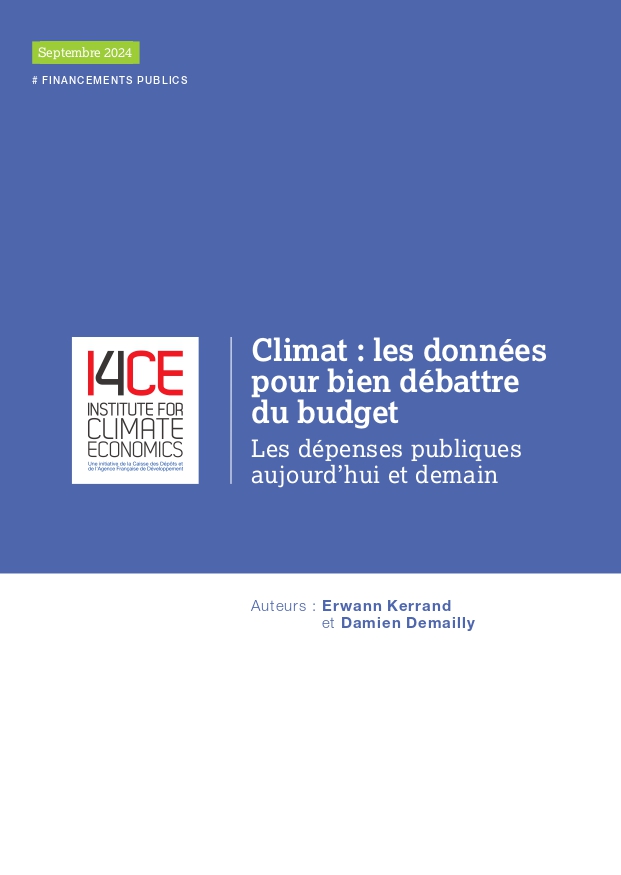Climate: The data driving budget debates in France. Public spending today and tomorrow
Report only available in French
Every year, the start of the budget debate in France is an opportunity to ask a number of questions: How much is public spending on climate? What is this money spent on? Which actors, both public and private, are on the receiving end? And above all: how should this spending develop in the future? Many numbers have been produced in France over the last few years and it is easy to get lost in the shuffle. This is why we wrote this handbook. We have gathered the information that we consider most important and tried to highlight what we know, what we do not yet know, and the key debates in France that politicians will have to hold and where they will have to quickly find compromises.
As is the case every year, the budget marathon will begin with the Government presenting the draft budget bill. During this marathon, members of the parliament and the Government will make important decisions about whether to continue transforming the French economy to make it more energy self-sufficient, less greenhouse gas-emitting, and more resilient to the inevitable consequences of climate change. What will happen, for example, to support for electric vehicles, for industrial decarbonation, and for local government climate action? How to also help the growing number of households whose houses are cracking due to the shrinking and swelling of clay soils?
This year, for the first time, the French parliament will discuss not only the budget for 2025, but also the multiannual financing of the transition. At the end of September, the government will present its multiannual strategy for financing the ecological transition (SPAFTE).
There are many intense debates ahead, in a French economic and political context that is special this autumn. France is subject to an excessive deficit procedure, which requires a consolidation of public finances, while at the same time investments in the transition must be increased and modest and support to lower- and middle-class households must be improved. In addition, members of the parliament will vote a budget in an unprecedented political configuration, with a hung parliament and a government, very recently appointed, with very little time to prepare its draft budget.
Click here to see “Total public spending in 2023” in French
The budget marathon will therefore provide an opportunity for crucial debates on the transition. It is however easy to get lost in the shuffle. In France, there is a growing number of figures and analyses on the “greening” of the budget. This handbook is here to help you navigate, and to help you debate (or follow the debates) in the budget marathon on the transition. We have gathered the information that we consider most important and tried to highlight what we know, what we do not yet know, and the key debates in France that politicians will have to hold and where they will have to quickly find compromises.
A handbook, but not an encyclopedia. We do not deal exhaustively with the links between the national budget and climate change. It leaves out many fiscal issues and the macroeconomic impact of the transition on public finances. But it does draw on the expertise developed by our Institute to understand the issues involved in financing climate investments in France, sector by sector, actor by actor. This is why it deals primarily with public spending on the transition.


